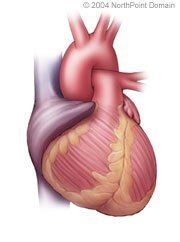Anticoagulant Therapy
Basic Facts
- Anticoagulants are medications that help prevent existing blood clots from growing larger or the formation of new blood clots by increasing the amount of time it takes a blood clot to form.
- Anticoagulants can be taken orally or injected.
- When used as directed and monitored, anticoagulants are safe and effective.

Anticoagulants are medications that help prevent existing blood clots from growing larger and the formation of new blood clots by increasing the amount of time it takes a blood clot to form. Anticoagulants help to prevent unwanted clotting by increasing the amount of time it takes blood to clot. Different types of anticoagulants achieve this in different ways, including:
- Warfarin;
- Heparin;
- Low-molecular-weight heparins (LMWHs); and
- Direct thrombin inhibitors.
WHEN ARE THEY INDICATED?
Anticoagulants are indicated for:
- Atrial fibrillation;
- Pulmonary hypertension;
- Cardiomyopathy;
- Pulmonary embolism;
- Ischemic stroke;
- Certain congenital heart disorders;
- Artificial valve replacement;
- Deep vein thrombosis;
- Unstable angina;
- Coronary artery bypass graft surgery;
- Angioplasty and stenting;
- Carotid artery disease; and
- Peripheral arterial disease.
Bivalirudin is indicated for patients with unstable angina who are undergoing angioplasty and for patients undergoing angioplasty who are at increased risk for a condition called heparin-induced thrombocytopenia or heparin-induced thrombosis-thrombocytopenia syndrome.
WHO IS ELIGIBLE?
Pregnant women or women who are nursing should not take anticoagulants.
PRE-TREATMENT GUIDELINES
Because of possible interactions with other drugs, the patient should report all other medications that he or she is taking to a physician prior to undergoing anticoagulant treatment.
The following conditions may complicate the use of anticoagulants:
- Diabetes mellitus;
- Severe allergies;
- Hypertension;
- Blood disorders;
- Cancer;
- A history of internal bleeding;
- Liver disease; and
- Kidney disease.
In addition, before taking heparin, patients should inform their physician if they are allergic to heparin or pork products.
RISK FACTORS FOR POSSIBLE COMPLICATIONS
Factors that increase the chances of harmful reactions include:
- Taking several prescription and over-the-counter drugs simultaneously;
- Drinking alcoholic beverages in excess;
- Taking certain medications such as warfarin with grapefruit juice;
- Advanced age;
- Diseases, such as diabetes mellitus or depression;
- Drug allergies; and
- Taking over-the-counter medications containing aspirin.
Each of these factors must be discussed with the physician prior to starting a new medication.
People taking warfarin must consume the same amount of vitamin K each day because consuming too much vitamin K can cause the blood to clot too easily and too little can increase bleeding risk.
WHAT TO EXPECT
Anticoagulants may be given orally or injected.
To determine the proper dose, the physician will order a blood test, called the international normalized ratio (INR), which indicates how long it takes blood to clot. Additional INR tests will be done to ensure an appropriate dosage is maintained.
The patient should take the medication in the evening at the same time, as directed by the physician. Patients should never skip a dose. If the patient misses a dose, he or she should take it as soon as possible. Patients should never take a double dose, however. If the patient forgets to take his or her dose until the following day, he or she should call the physician's office for instructions.
Warfarin
In addition to regular INR tests, the patient may need to use a warfarin log or journal to help track medication usage and dosing.
Patients should check with the physician or pharmacist before starting any new medicine or after any medication changes while on warfarin.
Heparins and direct thrombin inhibitors
The physician will determine the proper dose based on the INR. Injected anticoagulants may be administered by a healthcare professional or by the patient. Patients may receive heparin injections intravenously for 1 or 2 weeks, while subcutaneous injections may continue for up to 6 weeks or 6 months. The length of treatment will depend on several factors, including how well the patient responds to the medication.
POST-TREATMENT GUIDELINES AND CARE
Anticoagulant drugs require medical supervision. The patient should not start or stop taking these medications without first consulting a physician.
The patient should tell the physician if any side effects develop from medication therapy; the physician may change the dose or substitute another drug.
Patients should take the following precautions to avoid injury:
- Avoid potentially dangerous sports;
- Shave with an electric razor;
- Use a soft toothbrush;
- Use waxed dental floss;
- Wear gloves for yard work and when using sharp tools;
- Wear shoes or non-skid slippers in the house;
- Trim nails carefully; and
- Use care with knives and scissors.
Copyright © 2017 NorthPoint Domain, Inc. All rights reserved.
This material cannot be reproduced in digital or printed form without the express consent of NorthPoint Domain, Inc. Unauthorized copying or distribution of NorthPoint Domain's Content is an infringement of the copyright holder's rights.
